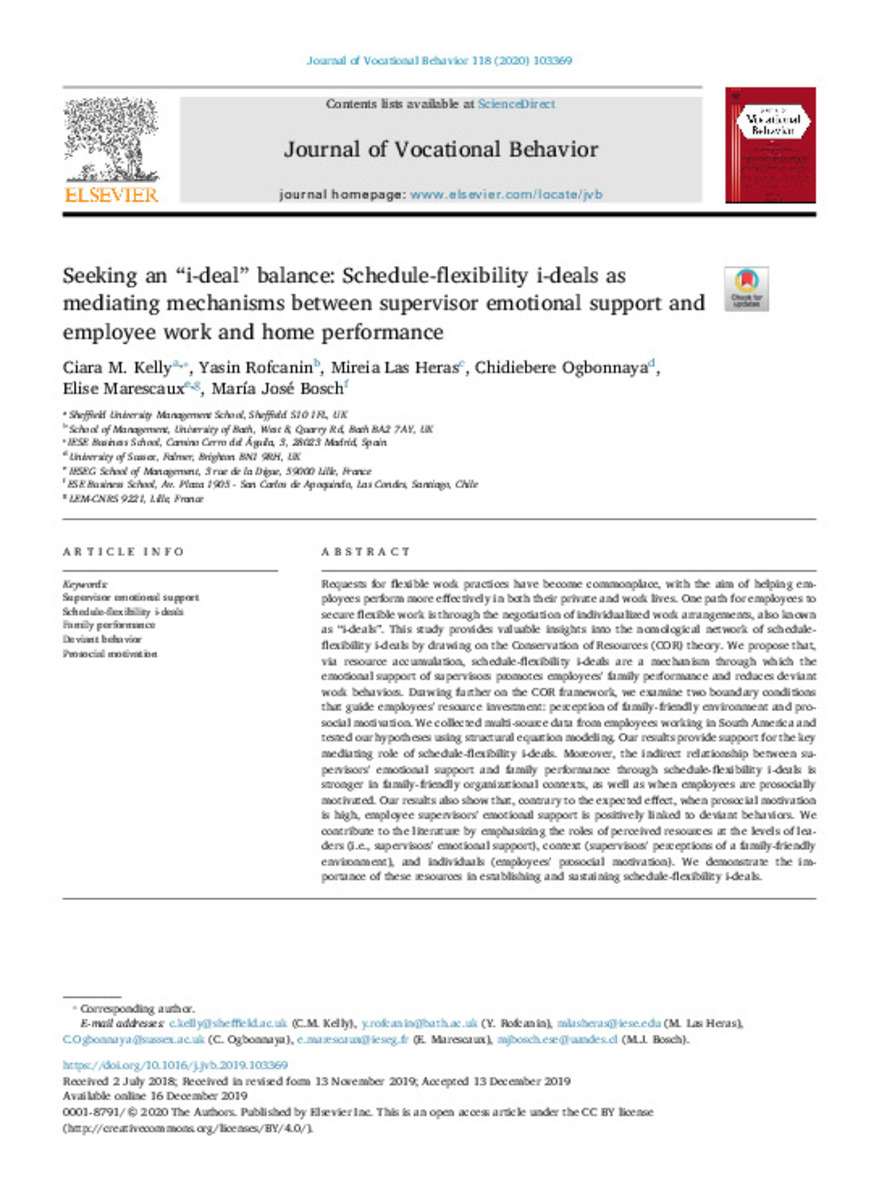Seeking an "i-deal" balance: Schedule-flexibility i-deals as mediating mechanisms between supervisor emotional support and employee work and home performance
Keywords:
Supervisor emotional support
Schedule-flexibility i-deals
Family performance
Deviant behavior
Prosocial motivation
Note:
This is an open access article under the CC BY license
(http://creativecommons.org/licenses/BY/4.0/).
Citation:
Kelly, C.M. (Ciara M.); Rofcanin, Y. (Yasin); Las-Heras-Maestro, M. (Mireia); et al. "Seeking an "i-deal" balance: Schedule-flexibility i-deals as mediating mechanisms between supervisor emotional support and employee work and home performance". Journal of vocational behavior. 118, 2020, 103369
Statistics and impact
0 citas en

0 citas en

Items in Dadun are protected by copyright, with all rights reserved, unless otherwise indicated.







